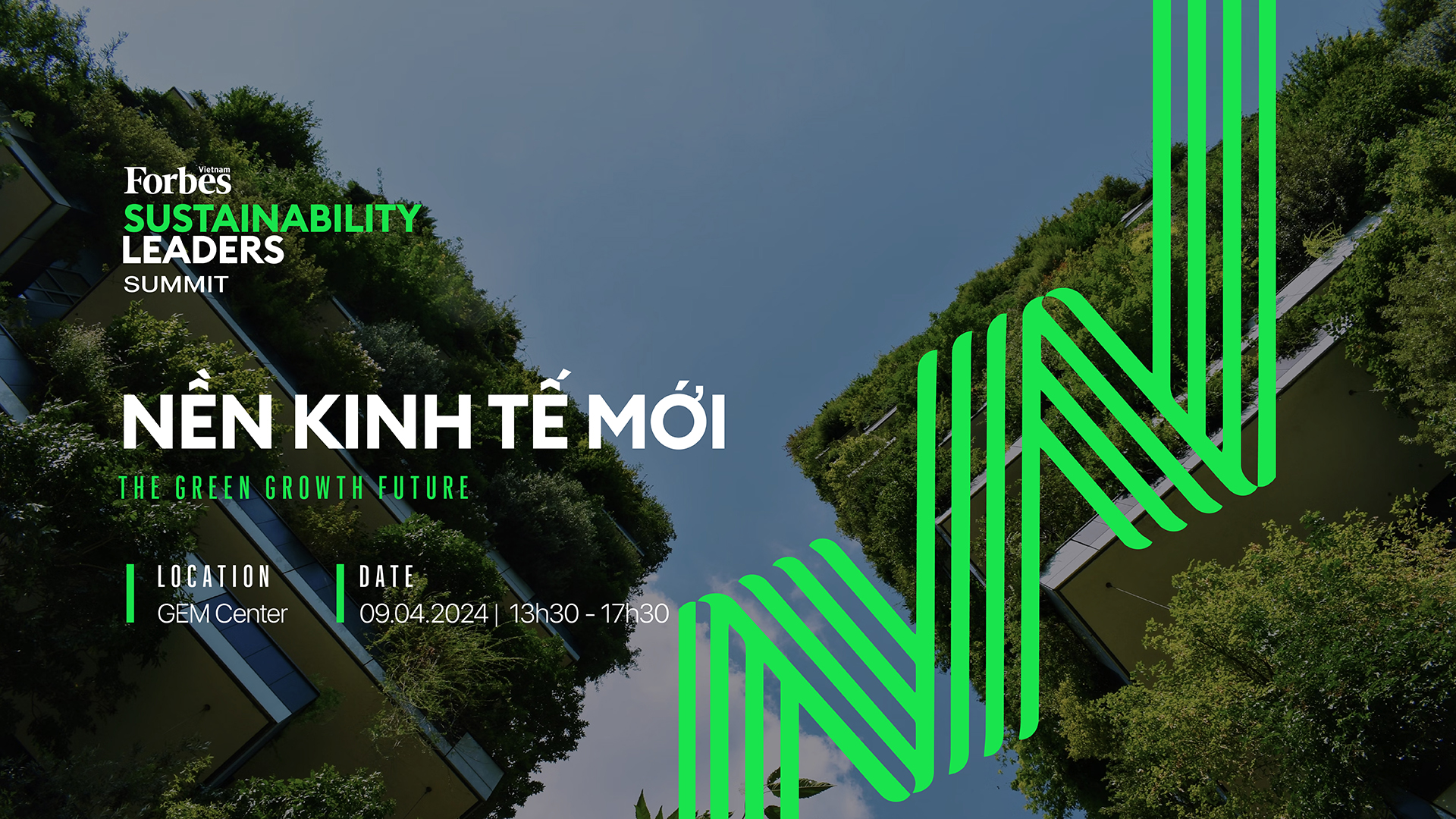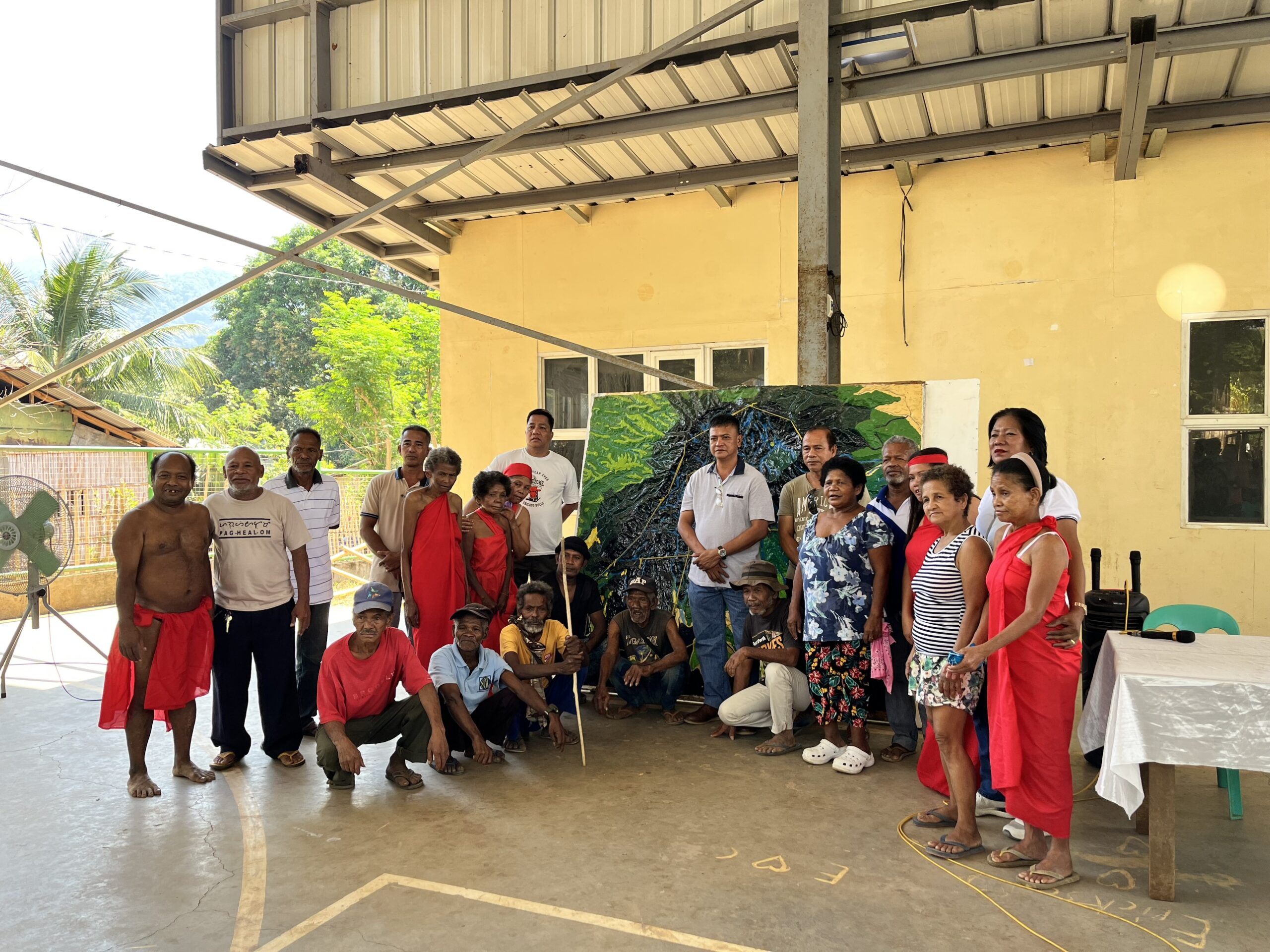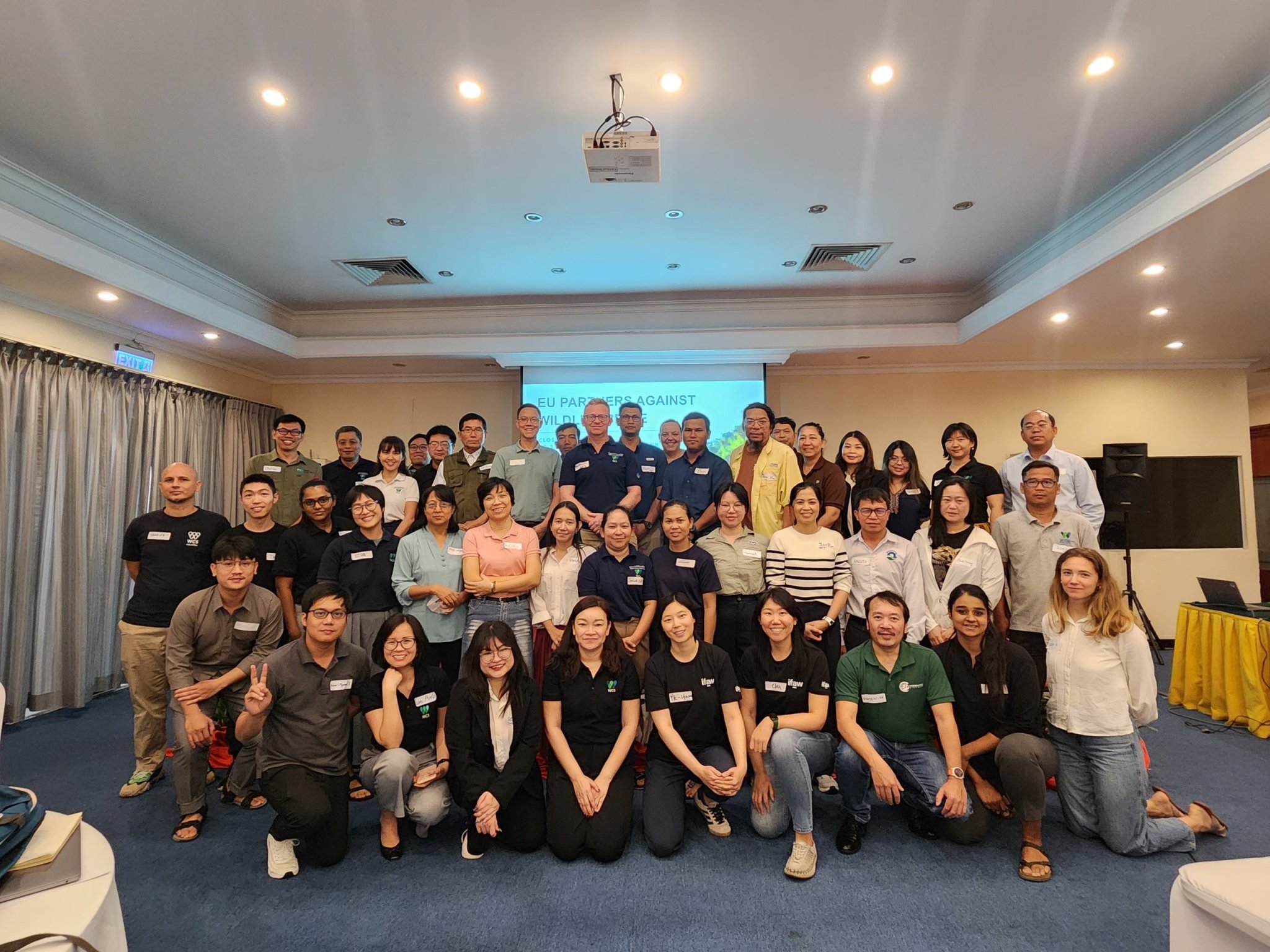In order to create an open space for discussion and explore directions in the trend of sustainable development within the business community, Forbes Vietnam is organizing the THE GREEN GROWTH FUTURE development conference. The conference gathers experts and leaders from businesses leading the market to discuss current topics on low-carbon economies, climate change mitigation, and the path toward sustainable development.
PanNature Members: Use code REF for a 30% discount (apply for the standard ticket)
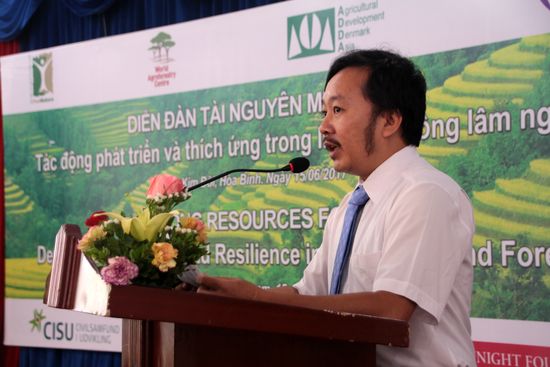
MEKONG RESOURCES FORUM III: Development Impacts and Resilience in Agriculture and Forestry in the Mekong Region
The third Mekong Resouces Forum with tittle: “Development Impacts and Resilience in Agriculture and Forestry in the Mekong Region” was held on 15 – 16 June 2017, in Hoa Binh, Vietnam by PanNature in co-operation with ADDA, the International Centre for Research in Agroforestry (ICRAF), and Vietnam-Lao-Cambodia Association for Economic Cooperation Development (VILACAED). There were about 100 participants from community and non-state organizations in the Lower Mekong region, research and academic institutions, representatives from governmental agencies, media and other interested parties took part in the event. The main objectives of the forum: To share issues, concerns, lessons learned, good practices and perspectives in agriculture and forestry sectors in relation to resilience and adaptation to environmental changes at different levels; and To discuss and promote better development alternatives and approaches in order to secure fair and equitable access to natural resources, improve livelihoods and quality of life and ensure sustainability of our living environment.
In the time of globalization, free trade, rising power of the private sector and much of uncertainty, nations in the Lower Mekong Region, therefore, have been influenced by changes from geopolitical competition, development trends, environmental degradation and the climate crisis. While the general social economic context is improving, there is the glooming picture of injustice, inequality and instability in terms of fair sharing of wealth and prosperity among different groups and communities among our society. On the other hand, there’s hopeful movement on the ground where communities find their ways to resilience and adapt to changes, as well as steer the bottom-up development.
ASEAN is anticipated to be one of the most dynamic economic regions. In 2015, the establishment of the ASEAN Economic Community (AEC) has marked a step of the state-led regionalization process to boost further connectivity and cooperation within the region with hope to create higher economic growth. With AEC, there expects to be an increasing trends of flows of capital and investment within the block. In the Lower Mekong, the intra-region trade and investment has increased in recent years between Myanmar, Thailand, Laos, Cambodia and Vietnam. Thailand and Vietnam, with more advanced economies, have become important investors in the region. For Vietnam’s investment, agro-forestry is the second largest sector in overseas investment structure, and it ranks third in Laos’ and Cambodia’s foreign direct investment and domestic direct investment receipt during 2011-2015.
As part of the economic integration and regionalization, there are numerous government-led initiatives, bilateral and multi-lateral, among regional states for promoting economic development, trade and investment. These inter-governmental projects, however, often lack inclusive participation of their utmost constituents and still far from the “people-centered” approach, one that has been the motto of ASEAN. The space for meaningful engagement of civil society and local communities in these process is limited.
While governments aim high to change economic structure to more industries and services, agriculture and forestry still play crucial role in regional economies. In addition to their endurance to external challenges, especially during economic crisis, these sectors provide a safety net as they are sources of food security and livelihoods for the majority of population, including those most vulnerable in rural and poor communities.
Despite obstacles and social political challenges, there has been a growing efforts from the ground by communities and civil society groups working to compliment the development gaps and resilience to changes in these sectors. Some successful lessons have been scaled up to local and national policy levels.
This Mekong Resources Forum hopes to connect ideas and efforts of communities and non-state groups across the Lower Mekong region in promoting resilience in agriculture and forestry, as well as reducing negative impacts from development on our natural resources and ecosystems. In addition, we hope to continue the discussion on rethinking development that comes from bottom-up toward prosperity and peace, people-centered approach, equity, and non-destructive alternatives.
Some pictures from the Forum:

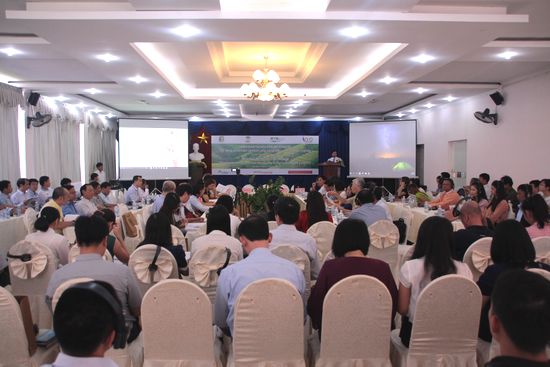
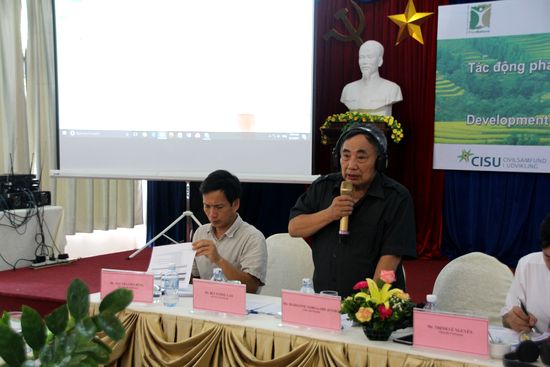
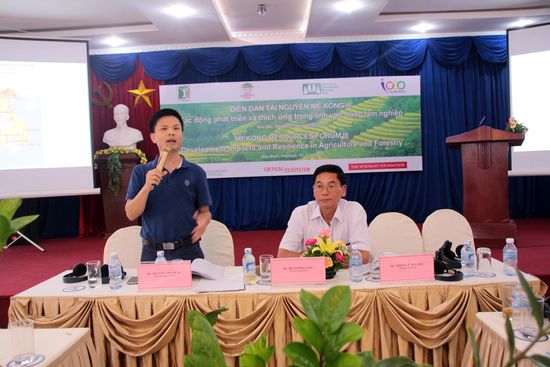
DOCUMENTS
Context of Agriculture and Forestry in the Mekong: Views from the Ground
Agribusiness and investment flows in the Lower Mekong
Chrek Sophea, Focus on the Global South
Climate-smart agriculture: Application and lessons learned
Marianne Norgaard Jensby, ADDA Denmark
Sub-regional collaboration on transboundary displacement
Mr. Nguyen Huu Dung, UN-REDD Program
Water resources for development and multi-sectoral conflicts: A case-study of the Mekong Delta
Dr. Le Anh Tuan, Can Tho University
Assessment of Fish Conservation Zones in Lao PDR
Mr. Sinsamout Ounboundisane, FishBio (Lao PDR)
Establishing resilient forests for hydrological services: Evidences from Vietnam
Dr. Pham Van Dien, Vietnam National University of Forestry
Forests and Forestry – Maintaining Ecosystems and Sources of Livelihoods
By Mr. Ouk Vannara, Deputy Executive Director of NGO Forum on Cambodia
Resilience and Adaptation: From the Bottom-up
Parallel Session I: Connecting Resilient and Sustainable Agricultural Practices in Mekong Region
Climate-smart agriculture and beyond
Mr. Do Trong Hoan, ICRAF
Connecting Resilient and Sustainable Agricultural Practices in Laos
Ms. Hongnapha Phommabouth, Green Community Development Association
CAD and Activities in Agriculture in Myanmar
Ms. Helen Naw Naw Shio, Community Agency for Rural Development
Facilitating climate change adaptation in agriculture in socio-economic planning at local levels in the Northwestern Mountains of Vietnam
Mr. Nguyen Duc To Luu, PanNature
Parallel Session II: Forests and Forestry –Maintaining Ecosystems and Sources of Livelihoods
Lessons learned from sustainable forest plantation in Vietnam
Dr. Tran Kim Hao, Institute of Rural and Community Development
Forestry and livelihood development
Mr. Tem Ven, Ponlok Khmer.
FREDA and activities in forestry in Myanmar
Ms. Tin Tin Ohn, FREDA
Would health of forest ecosystems determine the sources of forest dependent community incomes?
Mr. Keo Tai, NTFP-EP Cambodia Program
Impacts of Mega-scale Development and Mitigation: Regional Perspectives
Mega-scale development: The case of sugar concession in Cambodia
Eang Vuthy, Equitable Cambodia
Impacts on natural resources and livelihoods of small holder farmers
Mr. Sinthavong PHUANGCHAMPA, Global Association for People and the Environment (GAPE)
Stepping out of the REDD+, FLEGT and PES: What’s in it for local communities?
Dr. Pham Thu Thuy, CIFOR
Responsible and accountable business sector: Voluntary guidelines, laws, and corporate engagement
Ms. Nguyen Hoang Phuong, PanNature
Sustainable Poverty Reduction through Restructuring Land-use Patterns and Crops in Vietnam’s Central Highlands
Mr. Nguyen Van Minh, Institute for Sustainable Development Research in Vietnam and ASEAN
Toward a Better Governance Mechanism of Land Contracting for Inclusive and Sustainable Development
Ms. Ta Thu Trang, Institute of Policy and Strategy for Agriculture and Rural Development
|
Mekong Resources Forum is an initiative that aims to facilitate meaningful dialogues among regional organizations in the Lower Mekong Region. This non-state platform includes a wide variety of dialogues, exchanges, and cooperation activities built upon mutual interests and power of knowledge for bettering natural resource governance in the region. The first forum was organized in December 2011 in Hanoi. The second forum was organized in May 2013 in Tam Dao. |

